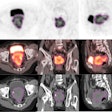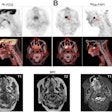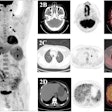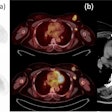Stereotactic radiosurgery (SRS) for brain metastases decreases the likelihood of local recurrence of brain tumors, but it doesn't improve overall survival rates in these patients, according to a talk at the American Society for Radiation Oncology (ASTRO) meeting in Boston.
Compared with observation alone following surgical resection, SRS did not yield a difference in overall survival or distant brain metastases. Nonetheless, the decreased likelihood of local recurrence could be good news for patients who wish to avoid whole-brain radiation therapy (WBRT) -- with its associated risks for cognitive decline and other toxicities -- after surgical resection of brain tumors, according to presenter Dr. Anita Mahajan of MD Anderson Cancer Center.
Mahajan and colleagues included 128 patients with one to three metastatic brain tumors who wished to avoid or delay WBRT following complete surgical resection of at least one brain metastasis. Patients were randomly assigned to one of two arms: SRS to the surgical cavity or observation.
Radiosurgery to the surgical cavity significantly reduced local recurrence of the resected tumor, the group found. At six months following treatment, local recurrence rates were 83% lower for the SRS group and 57% lower for the observation group. At the 12-month follow-up, local recurrence rates were 72% lower for the SRS group and 45% lower for the observation group.
However, there were no differences between treatment arms for regional recurrence, overall survival, or time to WBRT, according to Mahajan and colleagues.
"Our research shows that radiosurgery in this patient cohort does reduce the incidence of local recurrence, although the findings for overall brain control, overall survival, and time until whole-brain radiation therapy limit our ability to conclude an obvious clinical benefit," Mahajan said in a statement from ASTRO.


















